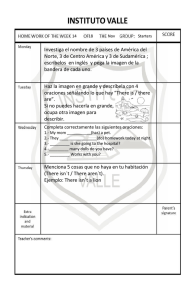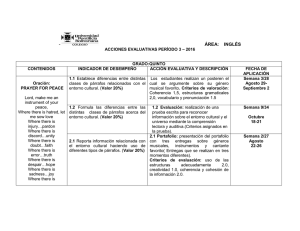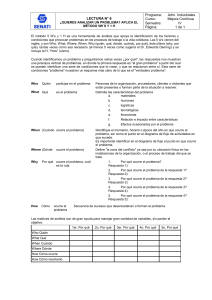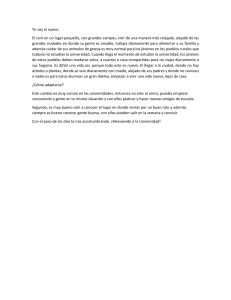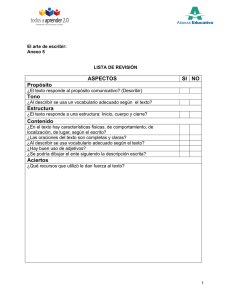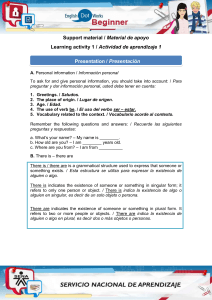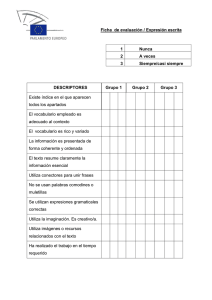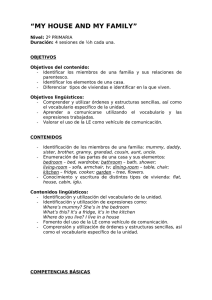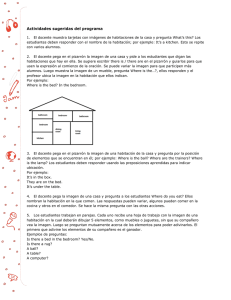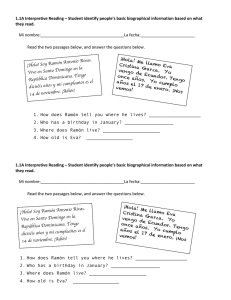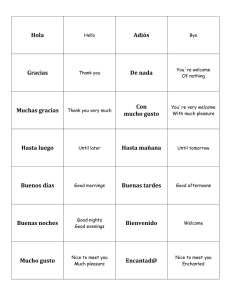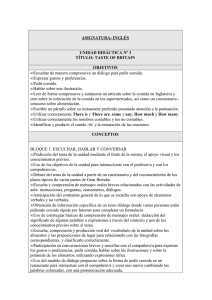TEMA -la sala de clase HACER -Conjugar verbos *calentamiento
Anuncio
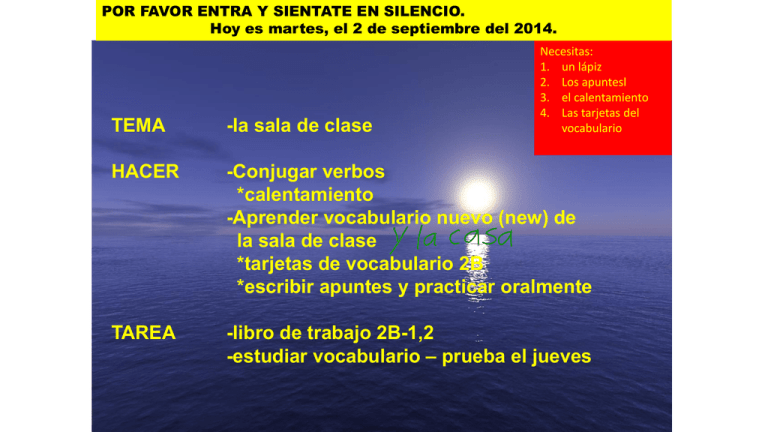
POR FAVOR ENTRA Y SIENTATE EN SILENCIO. Hoy es martes, el 2 de septiembre del 2014. Necesitas: 1. un lápiz 2. Los apuntesl 3. el calentamiento 4. Las tarjetas del vocabulario TEMA -la sala de clase HACER -Conjugar verbos *calentamiento -Aprender vocabulario nuevo (new) de la sala de clase *tarjetas de vocabulario 2B *escribir apuntes y practicar oralmente TAREA -libro de trabajo 2B-1,2 -estudiar vocabulario – prueba el jueves Calentamiento APUNTES - CAPITULO 2B – TU SALA DE CLASES (y casa) Hoy es viernes, el 29 de agosto del 2014. Common phrases to know: 1. ¿Qué es? – What is it? -Es… (It’s…) 2. ¿Qué es esto? – What is this? 3. ¿Dónde está? – Where is it? -Está…(It’s…) 4. ¿Dónde está…? – Where is….? 5. ¿Cuántos…hay? – How many…are there? -Hay… (There is/are…) 6. ¿Cuántos…? – How many…? 7. ¿Cuánto cuesta? – How much is it? -Cuesta… (It costs…) En la casa 3. El sillón 1. El librero 5. La pared 5. El estante 4. La cama 2. La mesita TO INDICATE & ASK LOCATION 1. 2. 3. 4. 5. 6. 7. 8. 9. 10. 11. 12. ¿Dónde? (Where?) ¿Dónde está(n)? (Where is it? Or Where are they?) allí (there) -Está… allá (over there) -Están… aquí (here) acá (over here) al lado de …(next to, beside) debajo de … (underneath) delante de …(in front of) detrás de … (behind) encima de ….(on top of) en (in, on) estar (to be) Estoy (I am) Estamos (we are) Estás (You are) Estáis (you all are – Sp.) (You are –f.) Está (he is) (She is) están (you all are) (they are) -use to indicate location Ex. ¿Dónde está el libro? -El libro está encima de la mesa. -use to indicate state of being Ex. Estoy enfermo. Estamos felices. Estás ocupado.
